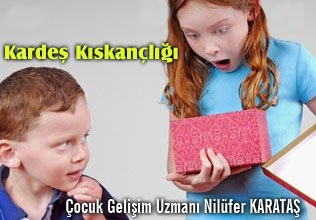
Jealousy is not being able to bear having a loved one shared with someone else. It is claimed that jealousy is encoded in our instinctive, innate genes. It can be seen in every period of life, but it can be experienced a little more intensely in childhood. The first encounter with this feeling is around the age of two. It is a natural, universal and very unhappy feeling. What matters is how big it is. The child begins to think that everyone is better than him and that he is less loved than everyone else. Especially in young children, jealousy of a newborn sibling can be an intense emotion that can sometimes affect life and cause behavioral disorders
, and it can become a situation that requires help.
REASONS
-
Jealousy, which is a natural emotion, is caused by the inability to share the loved one with another person and basically insecurity. The main reason is the discomfort arising from the attention and attention directed to himself until that moment, to his brother. With the birth of the sibling, the time allocated to him decreased; In the child, it may cause the development of feelings such as anger and resentment, which seem to be against the baby but are actually against the parents. The child begins to feel abandoned, insecure and unsupported.
-
Degree of sibling jealousy, changes in parental attitude with the birth of a new child, established relationship between older child and parent, and child condoning a negative impact on baby Depends on your tolerance.
- Another factor that plays a role in the degree of jealousy is the age difference between siblings. The frequency of jealousy in siblings with a small age difference is slightly higher than in siblings with a large age gap.
-
They may cause some negative thoughts to arise in relatives with outsiders. Asking the boy who has an older sister why his hair isn’t as curly as his sister, and telling the older sister that his brother’s height has caught up with him and may soon surpass him (as if that’s a bad thing) are approaches that have both unnecessary and negative effects. It can make children compete with each other and feel anger.

